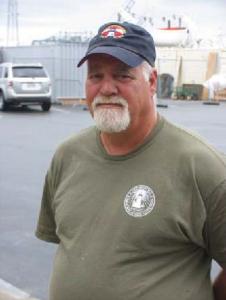Alan Cass

The Working Waterfront Festival Community Documentation Project
This project documents the history and culture of the commercial fishing industry and other port trades. The project began in 2004 in conjunction with the Working Waterfront Festival, an annual, educational celebration of commercial fishing culture which takes place in New Bedford, MA. Interviewees have included a wide range of individuals connected to the commercial fishing industry and/or other aspects of the port through work or familial ties. While the majority of interviewees are from the port of New Bedford, the project has also documented numerous individuals from other ports around the country. Folklorist and Festival Director Laura Orleans and Community Scholar and Associate Director Kirsten Bendiksen are project leaders. The original recordings reside at the National Council for the Traditional Arts in Maryland with listening copies housed at the Festival's New Bedford office.
Janice Gadaire Fleuriel
On September 27, 2008, Janice Gadaire Fleuriel interviewed Alan Cass as part of the Working Waterfront Festival Community Documentation Project. Alan Cass, a 60-year-old male, is a retired fisherman with a diverse ethnic background of English, Irish, and Portuguese heritage. He spent his career as a fisherman based in the home port of New Bedford, where he primarily engaged in scalloping. Alan shares his experiences, from working on fishing vessels, his involvement in the Alaskan fishing industry in the early 1970s, and the fishermen's union. Over the years, he has navigated through challenging conditions, weathered fishermen's strikes, and witnessed significant changes in fishing technology and regulations. Alan's experiences extend beyond fishing, including boat delivery work to locations like Galveston, Bequi, and Haiti. Throughout the interview, Alan discusses the intricate details of the fishing trade, his work as a captain managing a crew, and his love and connection to the water.
Please Note: The oral histories in this collection are protected by copyright and have been created for educational, research and personal use as described by the Fair Use Doctrine in the U.S. Copyright law. Please reach out Voices@noaa.gov to let us know how these interviews are being used in your research, project, exhibit, etc. The Voices staff can help provide other useful resources related to your inquiry.
The NOAA mission is to understand and predict changes in climate, weather, oceans, and coasts, to share that knowledge and information with others, and to conserve and manage coastal and marine ecosystems and resources. The Voices Oral History Archives offers public access to a wide range of accounts, including historical materials that are products of their particular times, and may contain offensive language or negative stereotypes.
Voices Oral History Archives does not verify the accuracy of materials submitted to us. The opinions expressed in the interviews are those of the interviewee only. The interviews here have been made available to the public only after the interviewer has confirmed that they have obtained consent.
